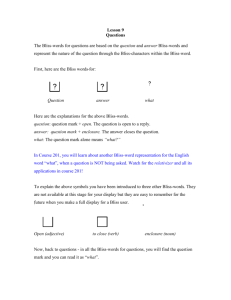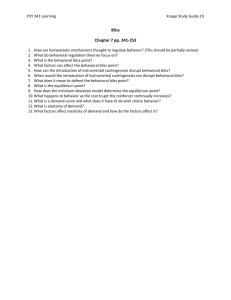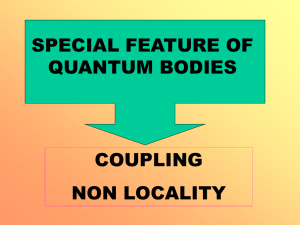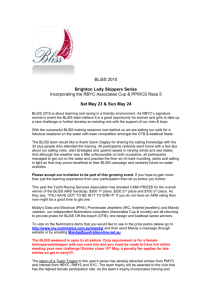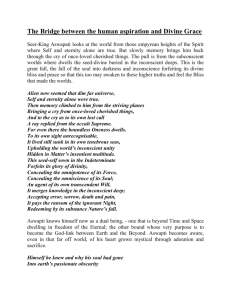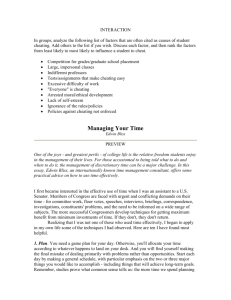Loving bliss and practices for this
advertisement
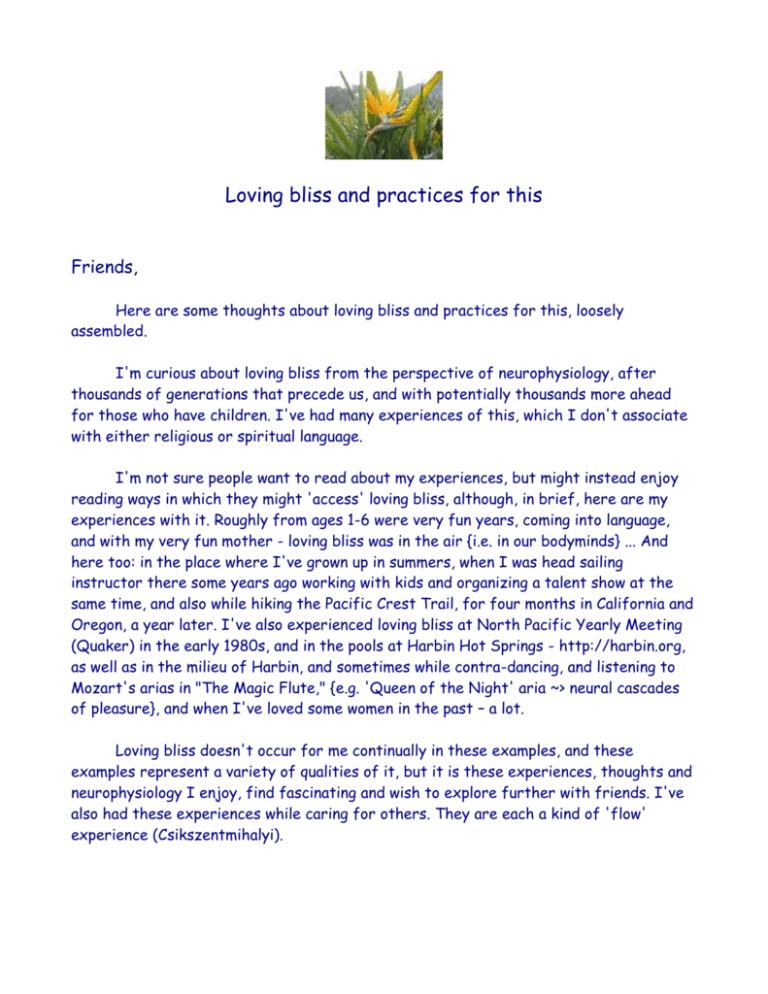
Loving bliss and practices for this
Friends,
Here are some thoughts about loving bliss and practices for this, loosely
assembled.
I'm curious about loving bliss from the perspective of neurophysiology, after
thousands of generations that precede us, and with potentially thousands more ahead
for those who have children. I've had many experiences of this, which I don't associate
with either religious or spiritual language.
I'm not sure people want to read about my experiences, but might instead enjoy
reading ways in which they might 'access' loving bliss, although, in brief, here are my
experiences with it. Roughly from ages 1-6 were very fun years, coming into language,
and with my very fun mother - loving bliss was in the air {i.e. in our bodyminds} ... And
here too: in the place where I've grown up in summers, when I was head sailing
instructor there some years ago working with kids and organizing a talent show at the
same time, and also while hiking the Pacific Crest Trail, for four months in California and
Oregon, a year later. I've also experienced loving bliss at North Pacific Yearly Meeting
(Quaker) in the early 1980s, and in the pools at Harbin Hot Springs - http://harbin.org,
as well as in the milieu of Harbin, and sometimes while contra-dancing, and listening to
Mozart's arias in "The Magic Flute," {e.g. 'Queen of the Night' aria ~> neural cascades
of pleasure}, and when I've loved some women in the past – a lot.
Loving bliss doesn't occur for me continually in these examples, and these
examples represent a variety of qualities of it, but it is these experiences, thoughts and
neurophysiology I enjoy, find fascinating and wish to explore further with friends. I've
also had these experiences while caring for others. They are each a kind of 'flow'
experience (Csikszentmihalyi).
Philosophically and neurophysiologically only, I think ecstasy (MDMA - methylene
dioxy methamphetamine) - is an interesting reference experience. The above
experiences all loosely relate to what I imagine MDMA experiences to offer. Such
neurochemistry suggests that these processes are biological, and not supernatural or
spiritual (as some might suggest), and ingesting such a substance suggests also that
there is a kind of threshold across which these states emerge. So I think one can access
loving bliss, and while I'm a little 'wired' for it - I think it's part of my neurophysiology
- I'm interested in exploring the threshold effect idea, where these states emerge.
And while it's part of other people's neurophysiologies - - Kenneth Boulding's
(Quaker economist and poet) comment, at Olney Friends' School, when asked about his
cheeriness: "Oh," (he kind of chortled in his English accent – I met him before) "it's
glandular," - - I think loving bliss is accentuated by an idealistic and intelligent discourse.
But I haven't had these experiences all the time, and don't have, and I'm curious
about accessing this neurophysiology in an almost naturally emergent way, perhaps by
doing less - wu wei (non-action in the Taoist writers' Lao Tzu or Chuang Tzu's senses), or as easily and freely as 'googling' information and surfing the World Wide Web. How
can one begin to just let loving bliss happen, and then welcome it on and on? The
simplicity, open-endedness and focus on goodness of silent meeting, as well as the
relaxation response, seem to provide possible bases. How to let it emerge with
awareness when it's beginning to bubble up in one's bodymind is a question I'm exploring.
I'm also interested in thinking out of the box – outside familiar patterns and
norms, which is something (non-theist) Friends have explored historically (with
conscientious objection, for example) - to explore how to access loving bliss fully. Click
on the 'notes' here for further thoughts about this http://scottmacleod.com/yoga.htm.
How to imagine and envision the kind of loving bliss one wants, and then realize
this? Sometimes loving bliss just bubbles up for me, - in beautiful, natural areas, in the
Harbin Hot Springs' pools, and in silent meeting, among many places. While a beautiful
place can be helpful for cultivating loving bliss, omega fatty acids (1000 mg at least 3-4
times per day) may also be important. And non-theist friends, with the possibility of
shaping friendly language that doesn't touch on the divine, but where loving bliss
emerges partly from an emergent language and this culture may also facilitate this. So,
for me, both Harbin Hot Springs with its wonderful gestalt, as well as the open-ended
milieu of the unprogrammed tradition of the Society of Friends (non-theist Quakers),
offer interesting contexts in which to explore these questions, neurophysiology and
language.
Metaphorically, I'd love to explore and find ways to give rise to the wondrous
weather of loving bliss in our bodyminds, whenever we want it, freely and with personal
freedom, and in so many ways.
Let's talk further about this. :)
Warm regards,
Scott
http://scottmacleod.com/LovingBlissPractices.htm
copyright Scott MacLeod's Arts 1998 - 2008
Practices to Elicit Loving Bliss
A basis for loving bliss (the following open the way to bliss for me, - explore for
yourself):
the relaxation response (Benson 1972)
releasing and breathing practices (especially delicious ones)
{a healthy bodymind also seems important - walking? yoga asana? swimming?
dancing? + a good diet}
For bliss {each can be a rich kind of 'flow' experiences, - especially when cultivating
bliss}:
listening to music
arias in Mozart's "Magic Flute," especially the "Queen of the Night" aria, and
other favorite opera arias
Yo-Yo Ma playing J.S. Bach's "Cello Suites" (e.g. the Prelude)
dancing (especially New England contra-dance for me)
singing & improvisational play singing
eating extraordinary food
making love, sexuality, and intimacy
conversing (mind-expanding & receptive intellectual conversation)
engaging great music, poetry, literature, art, etc.
moving back and forth between Harbin Hot Springs' hot & cold pools
shaping a virtual world to explore practicing loving bliss?
smiling ~ beaming :))
~ What helps you access bliss?
For love:
reciprocated, ongoing affection for another, a friend
exploring love in art, music, ideas with a dear friend, and/or friends
nameless, loving understandings between friends who love one another
receiving and giving warmth and love with a radiant friend
Practice loving bliss:
consider using language that works for you as a kind of art or technology to bring these
qualities of bliss to your bodymind in a variety of ways
> learn loving bliss through practice
> explore {with friends} ~ create ~ write about loving bliss
http://scottmacleod.com/LovingBlissPractices.htm
copyright Scott MacLeod's Arts 1998 - 2008
Knowledge-based resources (approaches to loving bliss)
Benson, Herbert and Miriam Z. Klipper. 2000 [1972]. The Relaxation Response. Expanded
updated edition. Harper.
http://www.amazon.com/Relaxation-Response-M-D-HerbertBenson/dp/0380815958/ref=pd_bbs_sr_1/104-74232433126334?ie=UTF8&s=books&qid=1184081854&sr=8-1
Csikszentmihalyi, Mihalyi. 1997. Finding Flow: The Psychology of Engagement with
Everyday Life. Basic.
http://www.amazon.com/gp/product/0465024114/qid=1152742117/sr=21/ref=pd_bbs_b_2_1/103-5928915-8116654?s=books&v=glance&n=283155
Csikszentmihalyi, Mihalyi. 1991. Flow: The Psychology of Optimal Experience. Rider &
Company.
http://www.amazon.com/Flow-Mihaly-Csikszentmihalyi/dp/0712657592/sr=11/qid=1157727810/ref=sr_1_1/104-2411940-9149542?ie=UTF8&s=books
Davidson, Richard J. 2007. "Transforming the Emotional Brain." Laboratory for
Affective Neuroscience at the University of Wisconsin-Madison. November 2006 video
presentation at UCLA Neuroscience Research Center. Accessed online: January 27,
2007.
http://psyphz.psych.wisc.edu/
http://psyphz.psych.wisc.edu/web/news.html
Seligman, Martin. 2004. Authentic Happiness: Using the New Positive Psychology to
Realize Your Potential for Lasting Fulfillment. Free Press.
http://www.amazon.com/gp/product/0743222989/sr=81/qid=1150898046/ref=pd_bbs_1/104-6959982-0440744?%5Fencoding=UTF8
http://www.authentichappiness.sas.upenn.edu/
Seligman, Martin. 1998. Learned Optimism: How to Change Your Mind and Your Life. Free
Press.
http://www.amazon.com/Learned-Optimism-Change-Your-Mind/dp/0671019112
http://scottmacleod.com/LovingBlissPractices.htm
copyright Scott MacLeod's Arts 1998 - 2008
